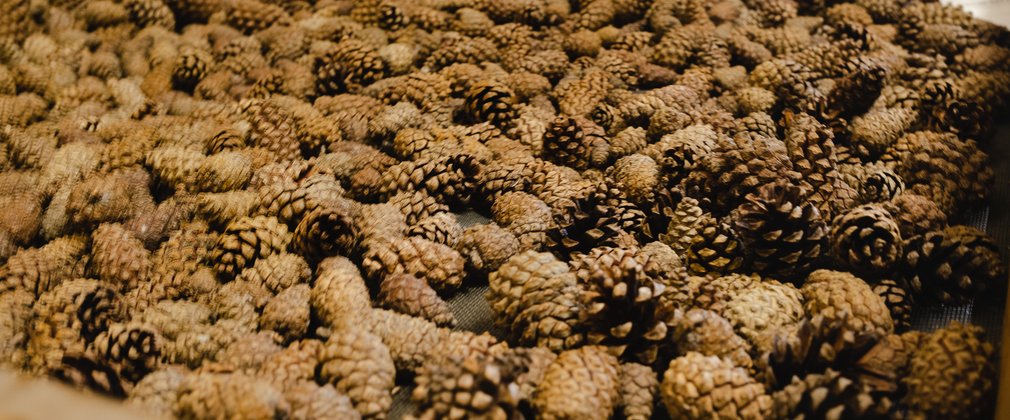
Forestry England converts Scots pine seed stand for future seed supply
Forestry England are converting orchard-origin stands of twelve thousand Scots pine in Kings Forest, Suffolk, to secure high-quality seeds to meet their tree planting targets over the coming years. The stands of thirteen-year-old trees cover ten hectares, and have been grown from original orchard seed identified from planting records.
The trees are being thinned and topped to produce higher numbers of cones and make it easier to collect the cones from ground level. The collected seeds will supplement those from Forestry England’s nine seed orchards throughout England which contain Scots pine, Sitka spruce and Lodgepole pine trees, specially bred for their timber characteristics and strong growth features. This is the first time a conifer stand has been converted in this way for many decades as the practice fell out of use when seed orchards were planted in the 1980s.
Forestry England stores about three years’ worth of seed at its seed processing facility at Alice Holt in Surrey, to ensure a secure stock of trees is available for planting across the nation’s forests. The annual demand for trees is at 6.5 million and Forestry England grows 75% of the trees needed to meet this demand, with remaining trees, particularly broadleaved varieties, sourced externally. As ambitious new tree planting initiatives are announced, including the recent Forestry England Woodland Partnership leasehold opportunity for landowners, the organisation is focusing on ensuring a resilient seed supply for all species for the years ahead.
Nicola Rivett, Forestry England Seed Resource Manager said:
This is an important part of our plans to ensure we invest in new, secure seed resources to reduce imports, provide a greater variety of seed for species which are increasing in demand, and replace some of our ageing seed orchards. With each Scots pine cone producing 20 seeds and a sack of orchard-origin cones giving up to 500g of seed, these stands will provide future high-quality trees and timber, well adapted to changing climate conditions for our forests.
As well as converting the Kings Forest stands, we’re identifying other orchard-origin stands of Scots pine, Sitka spruce, and Douglas fir, and looking for stands of oak, birch, and other broadleaved species with appropriate origins to manage as seed stands instead of harvesting for timber. This will ensure we have a home-grown supply of even more varieties for future forests and woodlands to flourish.
In 2019/20, a bumper season for seed harvesting, Forestry England collected three thousand sacks of Sitka spruce and Scots pine cones which contained around one thousand kilogrammes of seed – a potential 200 million trees.
Photos and video are available here
Notes to Editor
1. Forestry England manages and cares for the nation’s 1,500 woods and forests, with over 296 million visits per year. As England’s largest land manager, we shape landscapes and are enhancing forests for people to enjoy, wildlife to flourish and businesses to grow. For more information visit forestryengland.uk. Forestry England is an agency of the Forestry Commission.
Media Contact:
Naomi Fuller e: naomi.fuller@forestryengland.uk t: 07825 255618
